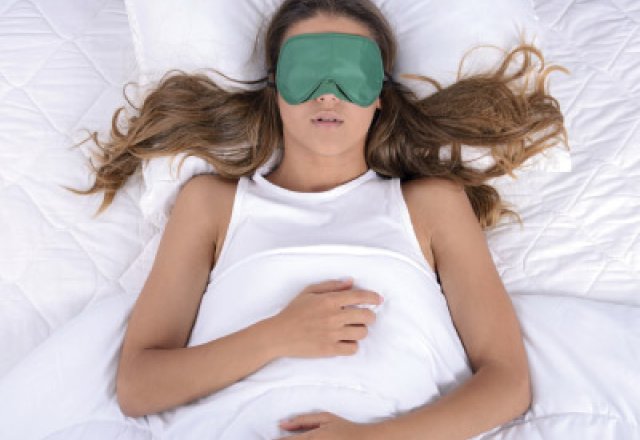
How to eat, sleep and heal your body naturally.

Tips and advice on how to sleep better.
We ask our go-to naturopath, chef, author and environmentalist JANELLA PURCELL about mastering fasting, deep sleep and medicinal rosemary.
I hear fasting is a great way to lose weight and feel healthy, but I’m not sure how to start. Do you have any tips or advice?
Fasting can be a wonderful tool, not just for weight loss but also for longevity, improved memory, sleep, mood and libido, and to clear up a skin or digestive problem. Or, it may be that we simply wish to enjoy an improved sense of wellbeing. It doesn’t necessarily mean not eating at all; some methods include consuming a vegie-based juice for one or more days – usually up to five maximum. You can also opt for smoothies, such as coconut water and a green powder to ensure you’re getting all your nutrients. This type of fast is pretty challenging, and not suited to everyone.
Our body types are all different so the most suitable way to fast for each of us will differ. I personally like to do juicing fasts for two non-consecutive days a week, then again in a block of five to seven days once or twice a year – usually at the beginning of spring and autumn. Others prefer the 5:2 method, where you restrict your caloric intake to 500 twice a week.
Some people are genetically better suited to fasting than others, so if at any time you start to feel faint, dizzy, or just really terrible, you should introduce more food. You should also take it pretty easy and reduce your exercise, get to bed early and avoid any unnecessary stress.
When I go to bed at night I can’t seem to switch my brain off. What are some natural remedies that can help me?
An estimated 30 per cent of the population suffers from insomnia at some stage in their lives, and lack of uninterrupted sleep causes all sorts of problems. An inability to get to sleep could be caused by all manner of things, from low blood sugar to hormonal changes to allergies. In your case, an overactive mind or a broken heart can and will keep you awake, as will worry, anger, guilt and fear – well, let’s just say ‘stress’ in general. With that in mind, I feel the first place to start in trying to get a better sleep is to learn a meditation technique. There are many now and some geared especially towards getting a better night’s sleep. Yoga Nidra is one of these. I also have a lot of success in my practice with a formula that includes any four of the following herbs: Californian poppy, passionflower, magnolia, Mexican valerian, skullcap, chamomile and valerian root. Have the formula made at your health food store and take before sleep to quiet your mind, and again if you wake during the night. Also avoid foods containing tyramine, which causes brain stimulation; these include chocolate, potatoes, cheese, bacon, sugar, sausage, tomatoes and wine.
I love the taste and smell of rosemary. What are some ways I can use it medicinally?
Rosemary, or Rosmarinus officinalis, has medicinal uses that are many and varied. The two main ingredients that give this herb its therapeutic qualities are caffeic acid and rosemarinic acid – both being potent antioxidants and anti-inflammatory agents. These two acids reduce the inflammation associated with asthma, and improve liver function and heart health. Rosemary is also a rich source of vitamin E, another potent antioxidant that contributes to free radical fighting powers, and again improving heart health. It can also help prevent the brain ageing and is now proving an important defence against cancer. Research has shown that rosemary extract can significantly help to protect DNA against free radical damage. Its other benefits are in reducing age-related skin damage, and acting as a mild diuretic to help reduce swelling. Rosemary is also thought to stimulate our adrenal glands to provide energy while lifting our mood and relieving stress. So as you can see, it’s more than an accompaniment to your baked spuds – take as a capsule, liquid herb from a herbalist or drink the fresh leaves in a tea.
Janella’s tips for deeper sleep
- Avoid large evening meals and eating just before bedtime
- Exercise regularly and moderately
- Don’t exercise late at night
- Reduce alcohol intake and avoid nicotine and other stimulants
- Go to bed as soon as you feel sleepy
- Get out of bed if not sleepy; the bedroom should be used only for sleep and sex
- Stop thinking by trying to bring energy down to your heart
- Have a regular waking time and early-morning exercise
- Avoid having a TV, your phone or computer in your bedroom


